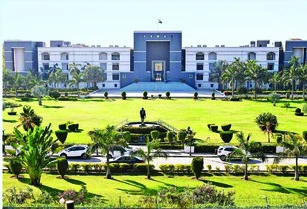In a pivotal judgment, the Gujarat High Court declared that withholding earned leave encashment from employees constitutes a violation of their constitutional rights. The Court upheld a labour court’s directive for the Ahmedabad Municipal Corporation (AMC) to compensate a retired employee, reinforcing the principle that earned leave encashment is an enforceable right protected under the Indian Constitution.
Earned leave encashment as a property right
Justice MK Thakker presided over the case, underscoring that earned leave encashment is not a discretionary benefit, but an employee’s property, protected under Article 300A of the Constitution. The Court observed: “When an employee has accrued and chosen to accumulate earned leave, the right to encashment becomes absolute, and no entity may revoke this right without lawful justification.”
The case involved Sadgunbhai Solanki, a former AMC employee, who sought compensation for his accumulated leave worth Rs 2.80 lakh after retiring in April 2014. AMC denied the claim, citing alleged unauthorized absences. In response, Solanki approached the labour court, which ruled in his favour. The AMC’s subsequent appeal to the High Court was dismissed, with the Court affirming the labour court’s findings.
Precedents supporting leave encashment rights
This judgment aligns with similar rulings from other courts. For instance, in Dattaram Sawant & Anr. vs Vidarbha Konkan Gramin Bank, the Bombay High Court declared that leave encashment equates to salary and constitutes property under constitutional protections. Likewise, the Karnataka High Court in H Channaiah vs Chief Executive Officer reiterated that leave encashment is a statutory right, enforceable under Articles 226 and 227 of the Constitution.
The Bombay High Court, in multiple rulings, emphasized that:
• Pension, gratuity, and leave encashment are fundamental employee rights.
• Employers cannot arbitrarily withhold such benefits without statutory justification.
• Resignation does not nullify accrued leave encashment rights.
Supreme Court’s Perspective
The Supreme Court has also consistently upheld employee entitlements. In Deokinandan Prasad vs State of Bihar (1971), it rejected the notion that benefits like leave encashment and gratuity are discretionary. Instead, it categorized them as integral to economic and personal liberties under Articles 19(1)(f), 21, and 300A of the Constitution.
In Jagdish Prasad Saini vs State of Rajasthan (2022), the Supreme Court emphasized that statutory obligations towards retiring employees must be honoured, warning against curtailing rights through administrative directives.
Broader Constitutional Implications
The Gujarat High Court’s ruling strengthens the legal framework safeguarding employee rights. Although the 44th Constitutional Amendment reclassified the right to property as a constitutional rather than a fundamental right, the judgment highlights its enduring importance in protecting earned employee benefits.
This decision serves as a cautionary tale for employers, reaffirming that earned leave encashment is not a gratuitous payment, but a statutory obligation. Denying it risks violating constitutional guarantees, ensuring stronger protections for workers across India.
—By Abhilash Kumar Singh and India Legal Bureau


